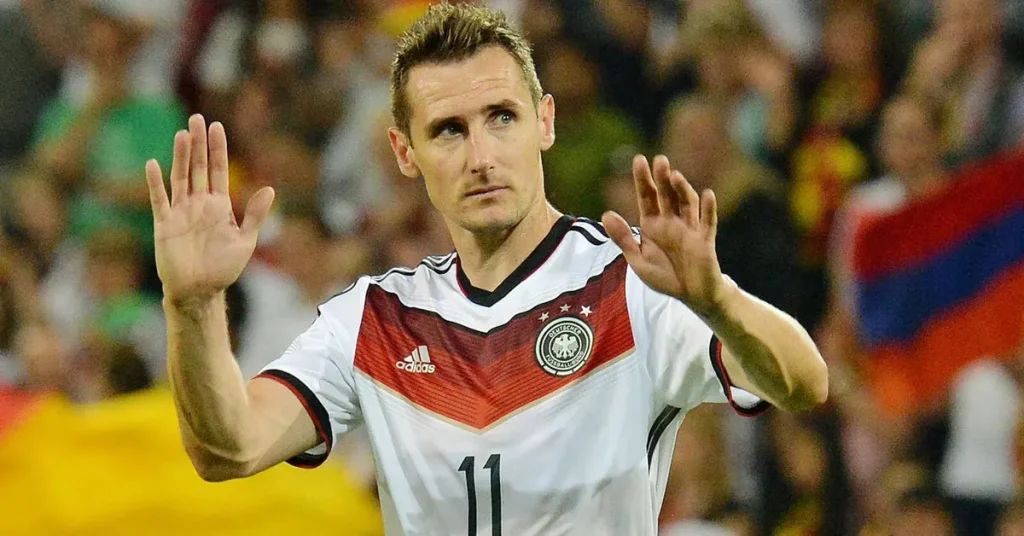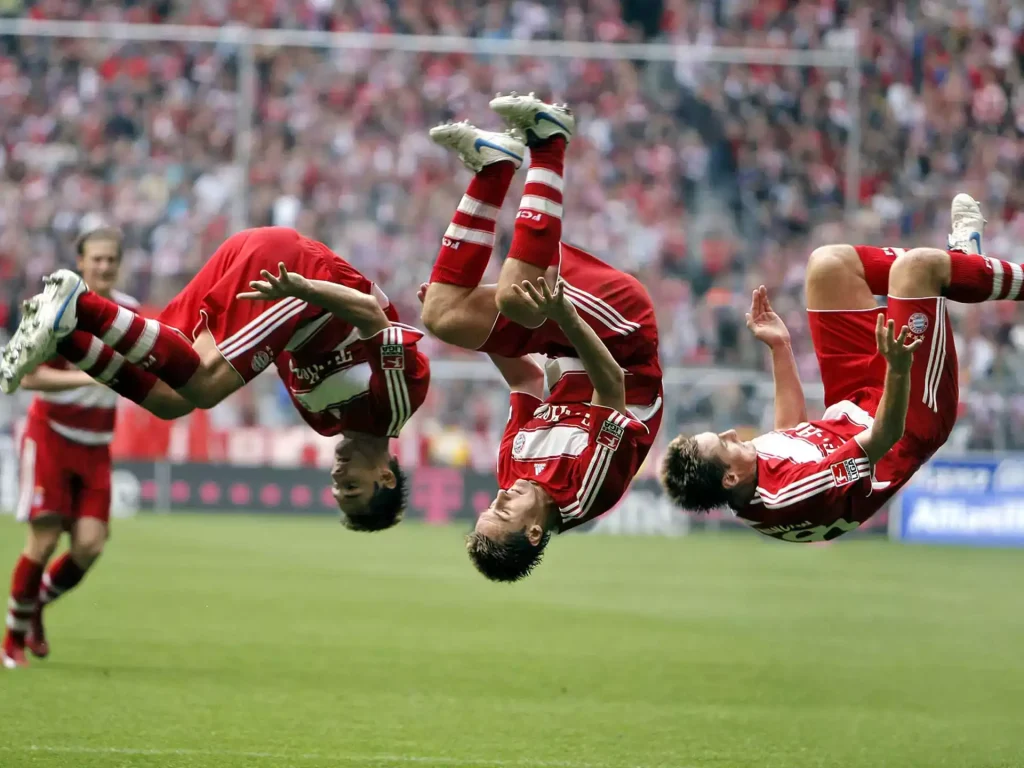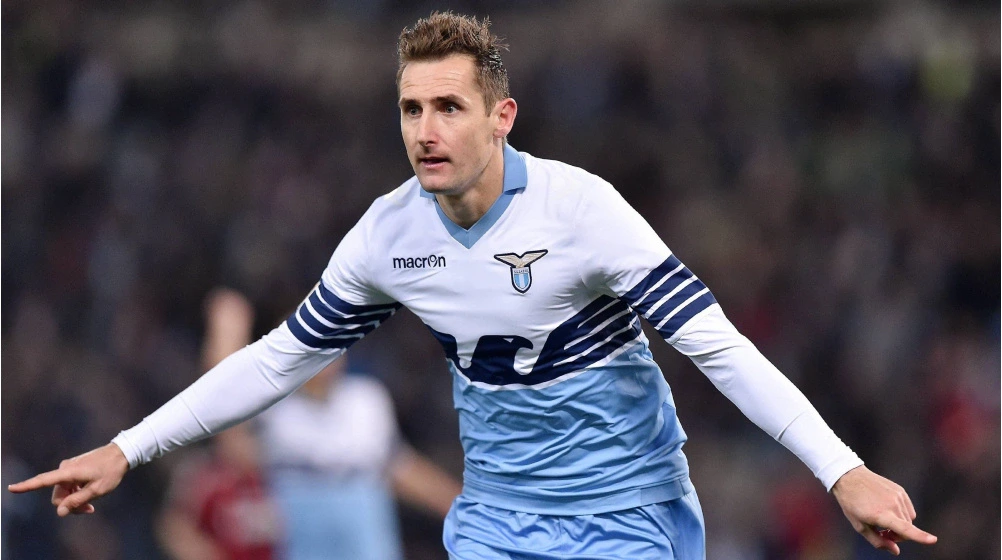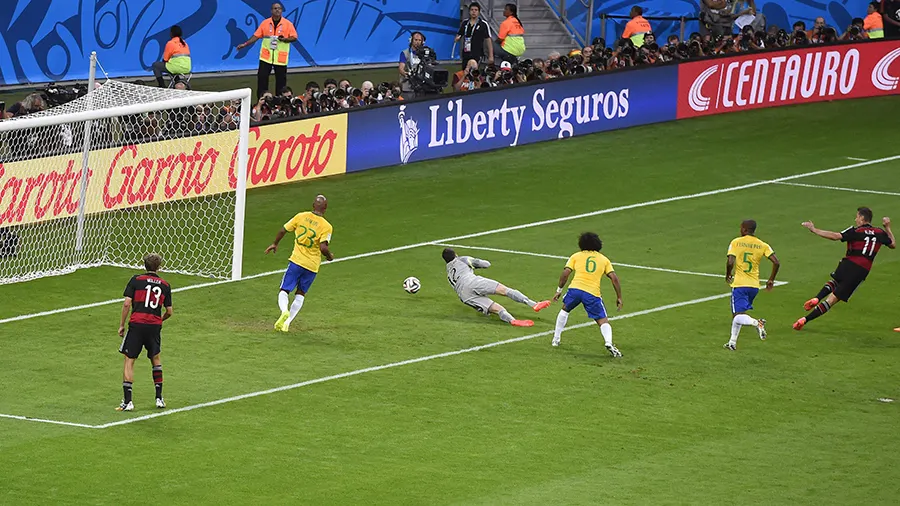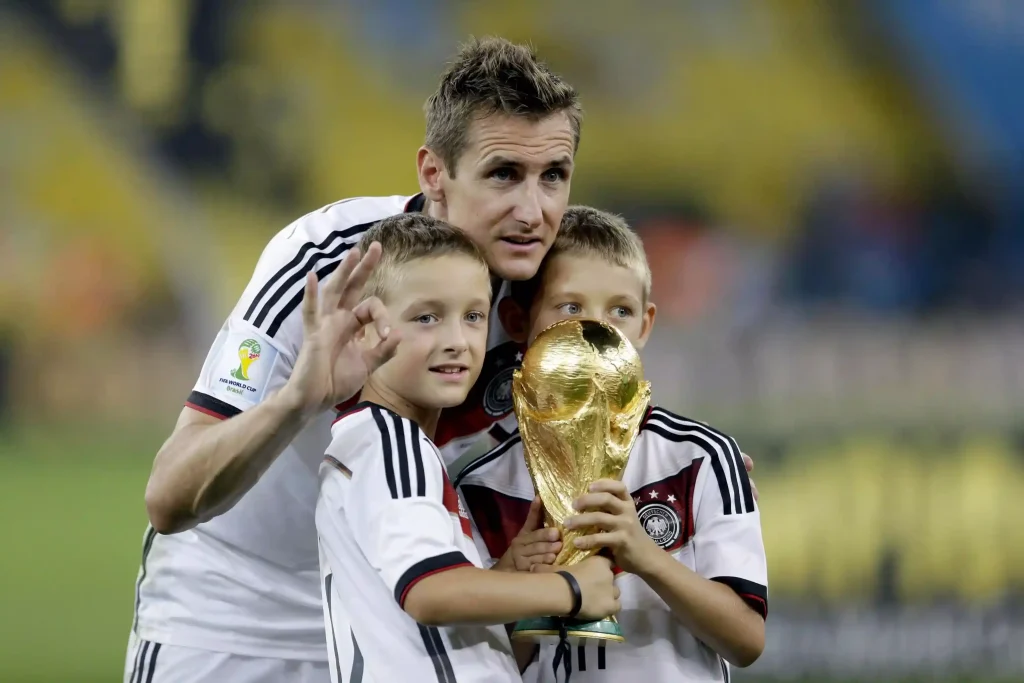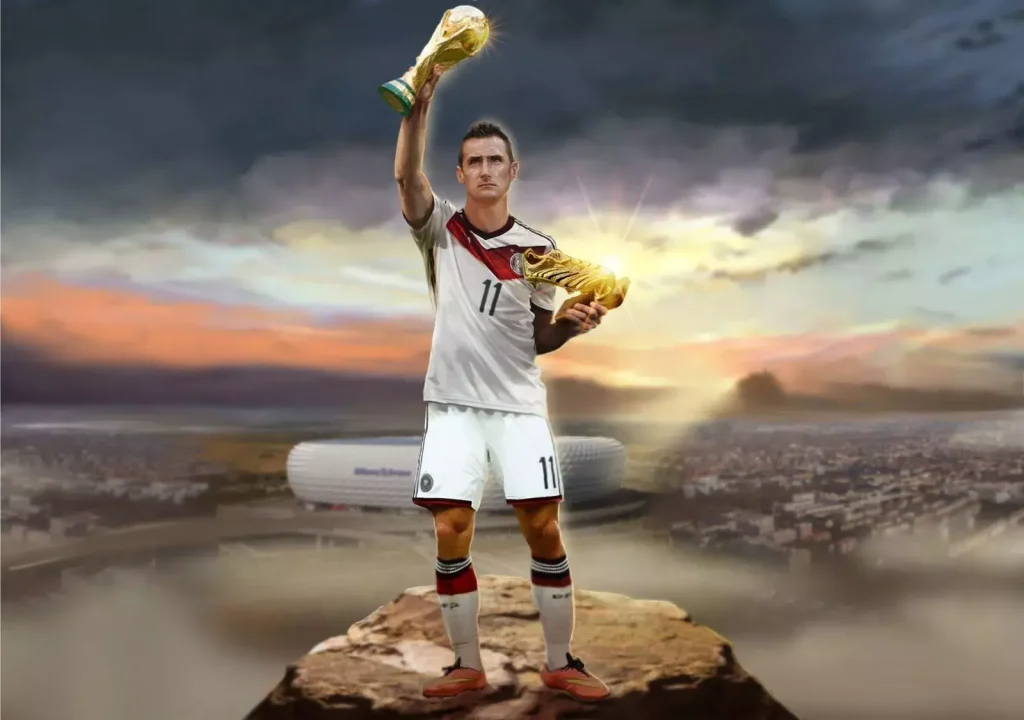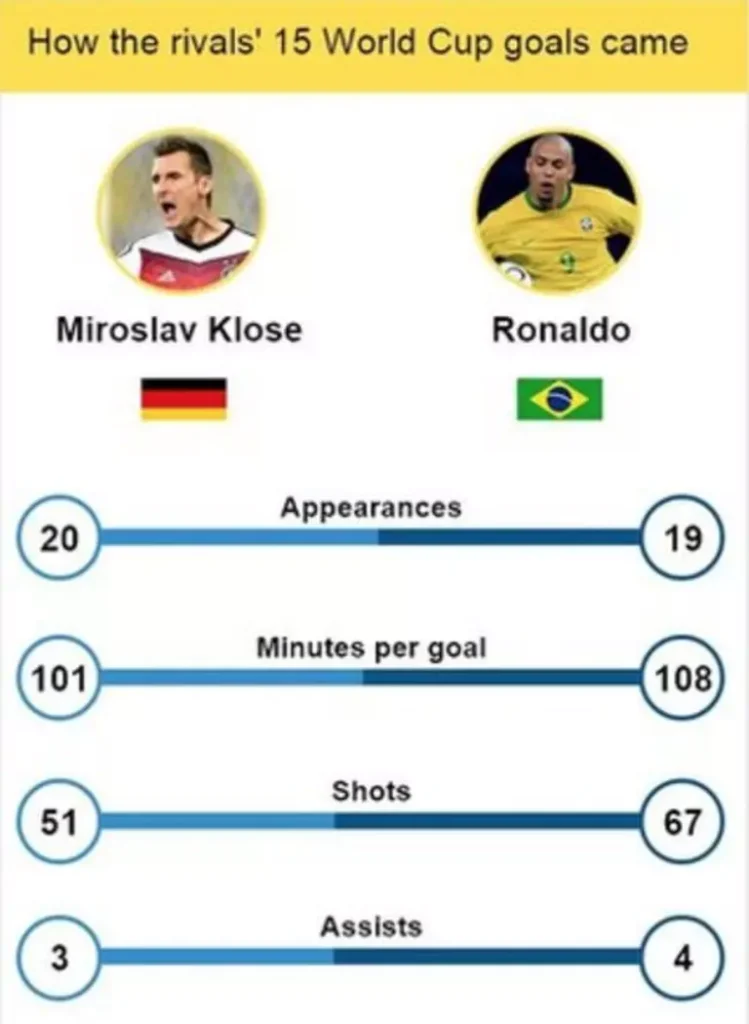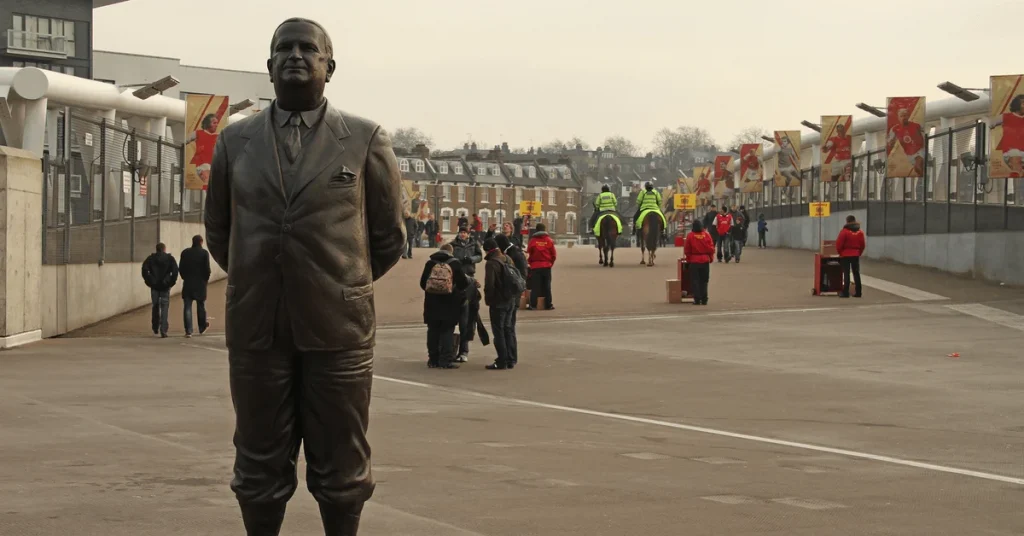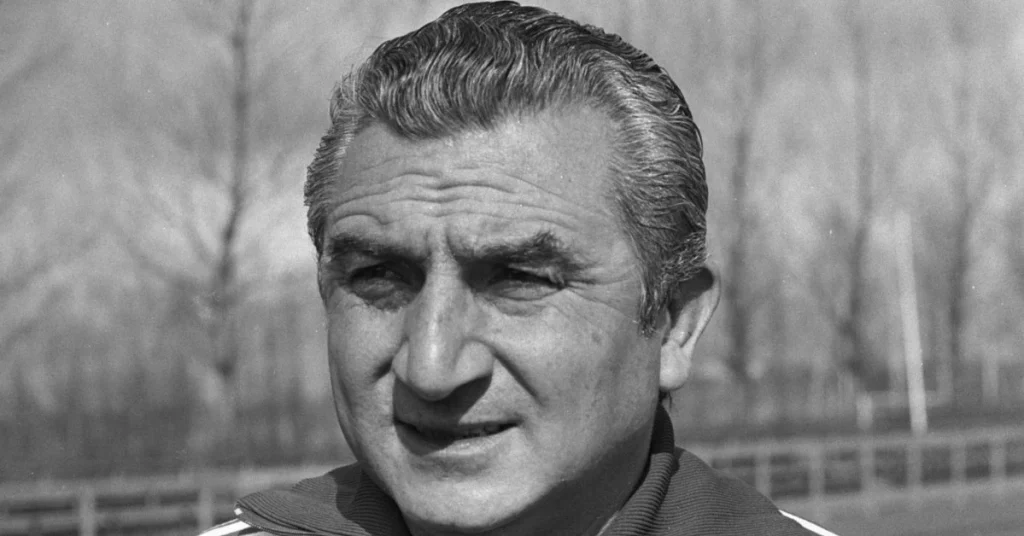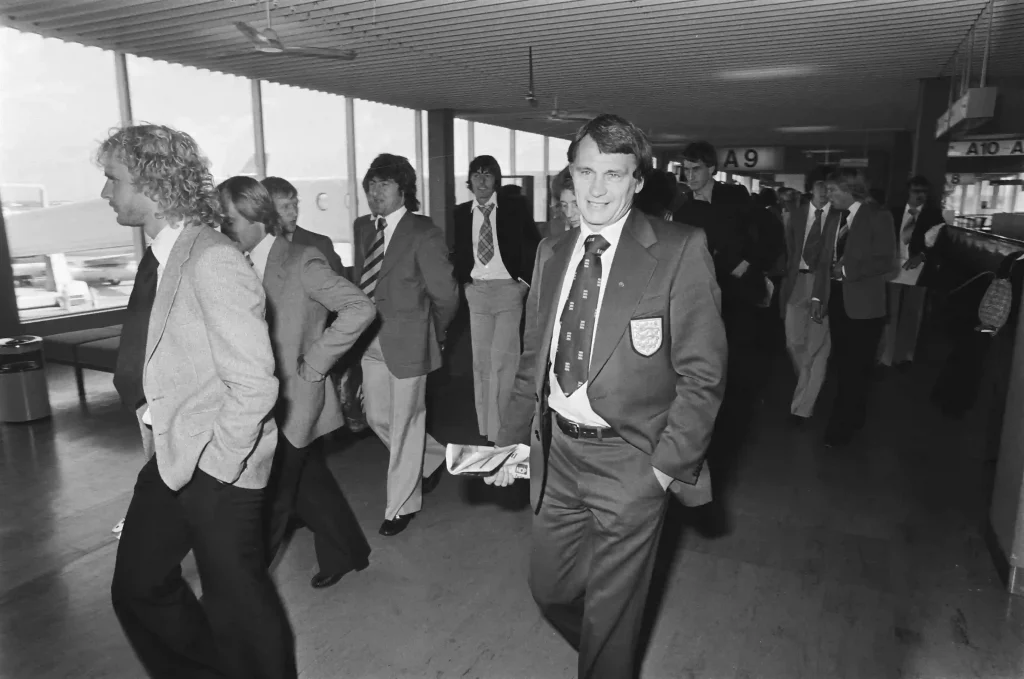Miroslav Klose is the scorer of the most World Cup goals of all time. He scored sixteen times for Germany over 4 WC tournaments. (2002, 2006, 2010, and 2014)
The striker played in 24 World Cup matches, winning 17 times. The German football player scored one hat trick on his World Cup debut and scored a brace (2 goals) three times in a match.
| Edition | Venue | Date | Opponent | Match | Stage | Goals Scored | Role In Team |
|---|---|---|---|---|---|---|---|
| 2002 | Sapparo | 01/06/2002 | Saudi Arabia | 8:0 (4:0) | Group Match | 3 | Starting |
| 2002 | Ibaraki | 05/06/2002 | Republic Of Ireland | 1:1 (1:0) | Group Match | 1 | Starting |
| 2002 | Shizuoka | 11/06/2002 | Cameroon | 0:2 (0:0) | Group Match | 1 | Starting |
| 2002 | Jeju | 15/06/2002 | Paraguay | 1:0 (0:0) | Round Of 16 | 0 | Starting |
| 2002 | Ulsan | 21/06/2002 | USA | 1:0 (1:0) | Quarter-finals | 0 | Starting |
| 2002 | Seoul | 25/06/2002 | South Korea | 1:0 (0:0) | Semi-finals | 0 | Starting |
| 2002 | Yokohama | 30/06/2002 | Brazil | 0:2 (0:0) | 2002 World Cup Final | 0 | Starting |
| 2006 | Munich | 09/06/2006 | Costa Rica | 4:2 (2:1) | Group Match | 2 | Starting |
| 2006 | Dortmund | 14/06/2006 | Poland | 1:0 (0:0) | Group Match | 0 | Starting |
| 2006 | Berlin | 20/06/2006 | Ecuador | 0:3 (0:2) | Group Match | 2 | Starting |
| 2006 | Munich | 24/06/2006 | Sweden | 2:0 (2:0) | Round Of 16 | 0 | Starting |
| 2006 | Berlin | 30/06/2006 | Argentina | 1:1 a.e.t. (1:1, 0:0) 4:2 PSO ARG | Quarter-finals | 1 | Starting |
| 2006 | Dortmund | 04/07/2006 | Italy | 0:2 a.e.t. | Semi-finals | 0 | Starting |
| 2006 | Stuttgart | 08/07/2006 | Portugal | 3:1 (0:0) | Third Place Playoff | 0 | Starting |
| 2010 | Durban | 13/06/2010 | Australia | 4:0 (2:0) | Group Match | 1 | Starting |
| 2010 | Port Elizabeth | 18/06/2010 | Serbia | 0:1 (0:1) | Group Match | 0 | Starting (Sent Off) |
| 2010 | Bloemfontein | 27/06/2010 | England | 4:1 (2:1) | Round of 16 | 1 | Starting |
| 2010 | Cape Town | 03/07/2010 | Argentina | 0:4 (0:1) | Quarter-finals | 2 | Starting |
| 2010 | Durban | 07/07/2010 | Spain | 0:1 (0:0) | Semi-finals | 0 | Starting |
| 2014 | Fortaleza | 21/06/2014 | Ghana | 2:2 (0:0) | Group Match | 1 | Substitute |
| 2014 | Recife | 26/06/2014 | USA | 0:1 (0:0) | Group Match | 0 | Substitute |
| 2014 | Rio De Janeiro | 04/07/2014 | France | 0:1 (0:1) | Quarter-finals | 0 | Starter |
| 2014 | Belo Horizonte | 08/07/2014 | Brazil | 1:7 (0:5) | Semi-finals | 1 | Starting |
| 2014 | Rio De Janeiro | 13/07/2014 | Argentin | 1:0 a.e.t. | 2014 World Cup Final | 0 | Starting |
Miroslav Klose Childhood
Miroslav Klose was born on June 9, 1978 in Opole, Poland. He is the son of former German soccer players Joseph Klose and Barbara Jez.
Klose’s family left Poland because his father signed a contract with the French soccer team Auxerre. They moved to Germany when Miroslav was eight years old when he spoke only a few words of German.
Klose started his career playing for SG Blaubach-Diedelkopf. In 1998, at the age of 20, Klose moved to FC 08 Homburg (4th highest league in Germany). One year later, he moved to 1. FC Kaiserslautern.
FC Kaiserslautern
Miroslav Klose started playing for the second team and debuted in the German Bundesliga in April 2000. He became part of the starting 11 in the following season (2000/2001).
He scored 16 goals in 2001/2002 and missed the best goal scorer title by two goals. Two years later, in the summer of 2004, Werder Bremen paid about $6 Million to sign him.
Werder Bremen
Klose signed a four-year contract. He struggled at the beginning of the season but scored three goals on the 6th game day against Bochum.
The season 2005/2006 was his career high point. He scored 25 goals and assisted 16 in the Bundesliga.
Due to great performances with Germany in the World Cup, big European teams like FC Barcelona showed their interest in signing Klose. Still, he decided to stay one more year in Bremen before moving to the German record champion, Bayern Munich, in 2007.
Miroslav Klose signed a four–year contract again. He scored twice in his Bundesliga debut for Bayern Munich against Hansa Rostock on August 11, 2007.
He won two German national championships and two German Cups with Bayern Munich, but he was never able to show notable performances as he did for his former teams.
As a result, he left Bayern Munich in the summer of 2011, surprisingly signing a contract with the Italian team Lazio.
Lazio
He made his debut in a Europa League game against Skopje on August 18, 2011, and scored two goals. Klose scored his first Serie A goal in a match against AC Milan.
He finished his Lazio career in 2016 as the seventh-highest all-time goalscorer, equaling Goran Pandev as the club’s highest non-Italian goal scorer.
International Career
The goalscorer of the most World Cup goals of all time began his international career on March 24, 2001, in an international match against Albania in Leverkusen.
He came on for Oliver Neuville in the 73rd minute and scored the 2-1 winner in the 88th minute. Klose played at four World Cups and three European Championships during his international career.
In 13 years as a national player, the striker played 137 games for the DFB. Only Lothar Matthäus (150) played more often for Germany.
Miroslav Klose is the best German striker of his generation, the country’s all-time leading scorer with 71 goals in 137 games.
Miroslav Klose ended his international career in the national team after winning the 2014 World Cup.
“With the title in Brazil, my childhood dream has come true. I’m proud and happy that I was able to help shape this great success for German football. I had a wonderful time on the national team and many unforgettable moments. The last few weeks I used it to remind myself of these moments and to enjoy them. So there can’t be a better time for me to close the chapter on the national team,” said the player with the most goals in World Cup finals history.
The striker scored two goals at the World Cup in Brazil, and his total number of goals at World Cups adds up to 16. The German overtook Brazilian Ronaldo (15) and is the sole World Cup record scorer.
With 71 international career goals, Klose is also the record scorer in the history of the DFB, ahead of Gerd Müller (68).
Not Flamboyant
The soft-spoken Klose is the antithesis of flashy and, in many ways, the epitome of Germany’s star-less World Cup teams.
“There’s no shame in falling down – the only shame is not getting back up on your feet again,” Klose said in his profile on the German FA’s website.
Tall and strong in the air, Klose was known for his superb timing and leaping ability. He was consistently lethal in front of goal in four World Cups, helped by the fact that Germany reached the final and semi-finals twice.
In the 2002 WC edition, Klose scored five headed goals as underdogs Germany made it to the final, where they lost 2-0 to Brazil, with Ronaldo scoring twice to register eight goals for the tournament.
Four years later, with Germany as hosts, Miroslav Klose won the Golden Boot when he scored another five goals in leading Germany to the semi-finals. Then, in South Africa in 2010, the striker who scored the most goals in the World Cup scored another four.
Klose has also been the beneficiary of outstanding crops of attacking midfielders who have set up many of his 71 goals for Germany.
He has seen off challenges from several younger strikers eager to replace him, including Mario Gomez.
Klose is the only specialized striker in Germany coach Joachim Loew’s squad in Brazil after Gomez was dropped in 2014. Aged 36, Miroslav Klose played a crucial role in Germany’s World Cup triumph in Brazil.
The aerial specialist is one of only three players to have scored three or more goals at three World Cups, along with compatriot Jurgen Klinsmann and Brazil’s Ronaldo.
He also competed at three UEFA European Championships in 2004, 2008, and 2012.
Miroslav Klose Was A World Star
National Coach Joachim Löw: Miro Klose has always been reliable and is a world star. He is one of the greatest strikers that football has produced. His footballing qualities, such as his header strength, presence in the penalty area, understanding of the game, and tireless commitment, are unparalleled worldwide.
And yet I have hardly seen a player who stands for down-to-earthiness, modesty, fair play, professionalism, reliability, and team spirit. Miro was always honored to be called up for the national team. He gave everything to Germany.
DFB President Wolfgang Niersbach: Miro is not only an outstanding player but also an absolute role model as a person. Over the years, he has always remained humble and down to earth.
With his 71 international goals and 16 World Cup goals, he has set two phenomenal records that give him pride of place in the history books. I’m also happy he could crown his incredible career with the World Cup trophy.
DFB general secretary Helmut Sandrock: As world champion and record goalscorer, Miroslav Klose is one of our great strikers. He showed how you can still be world-class in your mid-30s and always remain a fair sportsman despite all your sporting ambitions.
National team manager Oliver Bierhoff: Strangely, Miro will no longer be with the national team in the future. I saw him as a teammate at the 2002 World Cup and from 2004 onwards from the perspective of the sports director.
With his attitude, commitment, character, and sporting qualities, Miro was a model professional on and off the pitch and a role model for professionalism and humanity.
His successes and goals speak for themselves. His consistency is unique. After 13 years together, all I can say is: Thank you for everything, Miro!
Becoming A Coach And Manager
Miroslav Klose revealed he always thought about going into coaching. In 2016, the player with the most goals in World Cup was appointed to Joachim Low’s backroom staff.
“I’ve thought about it long,” said Klose. “During my playing days, I always thought about tactics and playing styles. I’ve decided to get a new view on football as a possible coach in the future.
“I’m thrilled to be again a part of this big family and to have the chance to work here. How many people get the opportunity to work with a national team straight away? To have the chance to work with a World Cup-winning coach is exceptional, and not everybody gets that opportunity. So I want to soak up as much as possible that will help me in the future.”
Klose was named Bayern Munich’s U-17 coach in 2018. Under Hansi Flick, Klose signed a one-year contract to become the assistant manager of the first team in 2020. In May 2021, he left Bayern Munich. During the summer of 2022, Rheindorf Altach announced Klose would become their head coach.
Miroslav Klose Stats And Facts
Full Name: Miroslav Josef Klos
Birthdate: 09/06/1978
Birthplace: Opole, Poland
Senior Career:
- FC 08 Homburg 1998–1999
- 1. FC Kaiserslautern 1999–2004
- Werder Bremen 2004–2007
- Bayern Munich 2007–2011
- Lazio 2011–2016
Total Appearances: 529 matches (212 goals)
International Career:
- German National Team 2001-2004
Total International Appearances: 137 matches (71 goals)
Managerial Career:
- Germany (assistant) 2016–2018
- Bayern Munich U17 2018–2020
- Bayern Munich (assistant manager) 2020–2021
- Rheindorf Altach 2022–
Club Playing Honors:
Werder Bremen
- 2006: DFL-Ligapokal
Bayern Munich
- 2007–08 and 2009–10: Bundesliga Champions
- 2007–08 and 2009–10: DFB-Pokal Winners
- 2007: DFL-Ligapokal
- 2010: DFL-Supercup
- 2009–10: UEFA Champions League runners-up
Lazio
- 2012–13: Coppa Italia Trophy Winners
- International Honors With Germany
- 2014: FIFA World Cup Winners:
- 2002: FIFA World Cup Runners-Up
- 2006 and 2010: FIFA World Cup Third Place
- UEFA European Championship runner-up: 2008
Personal Honors:
- 2002: FIFA World Cup Silver Shoe
- 2006: FIFA World Cup Golden Shoe
- 2002 and 2006: FIFA World Cup All-Star Team
- 2006: Footballer of the Year in Germany
- 2005–06: Bundesliga Player of the Season
- 2005–06: Bundesliga top goalscorer (25 goals)
Individual Records:
- Goalscorer with the most goals at the FIFA World Cup: 16
- All-time goalscorer for the German national team: 71
- He is the only player to have finished on the podium in four consecutive FIFA World Cups (runner-up in 2002, third place in 2006, third place in 2010, and winner in 2014).
- In 2002, 2006, 2010, and 2014, he appeared in four consecutive FIFA World Cup semi-finals for men.
- In addition to Teofilo Cubillas and Thomas Muller, he has scored at least five goals in two World Cups: five in 2002 and five in 2006.
- In the men’s FIFA World Cup of 2002, 5 goals were scored from headers.
- Miroslav Klose is one of only eight players to score five goals in one match in the history of Serie A.
